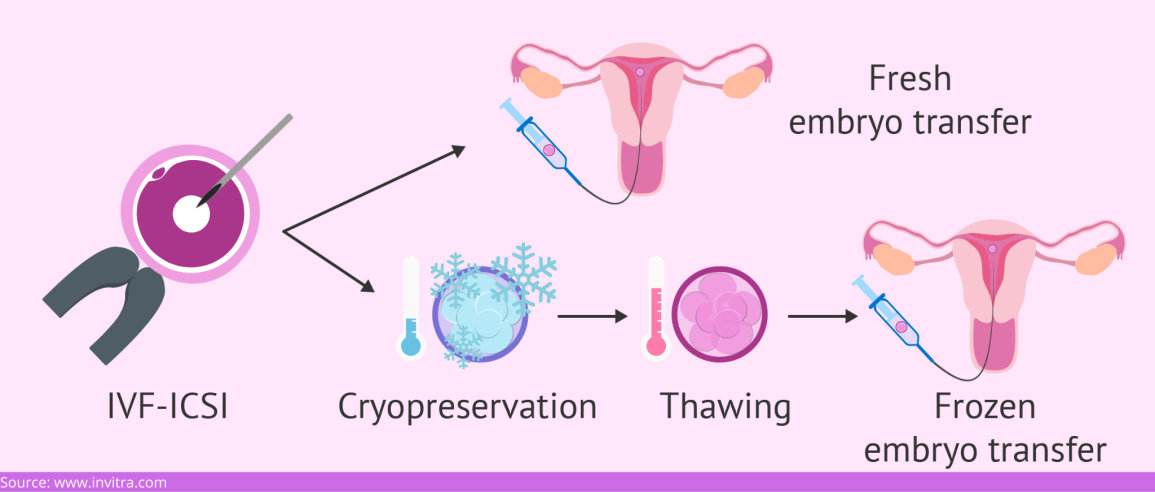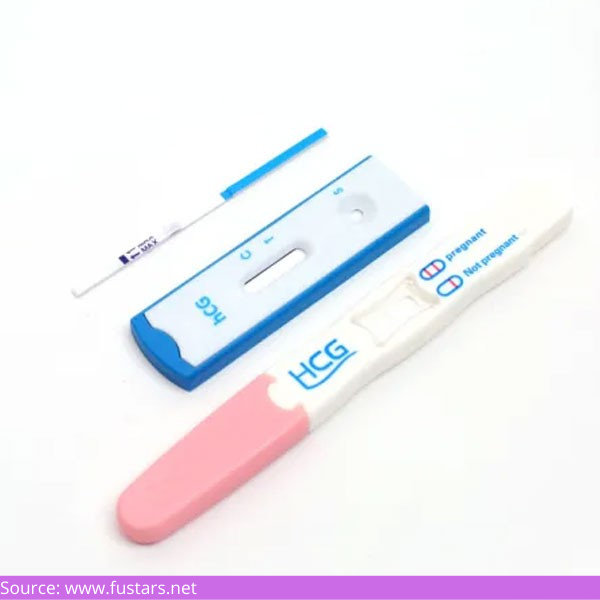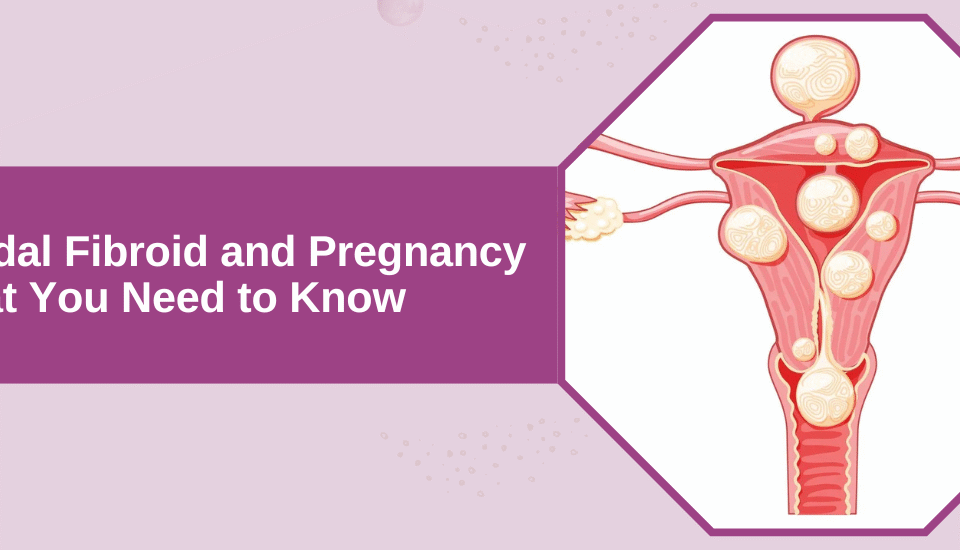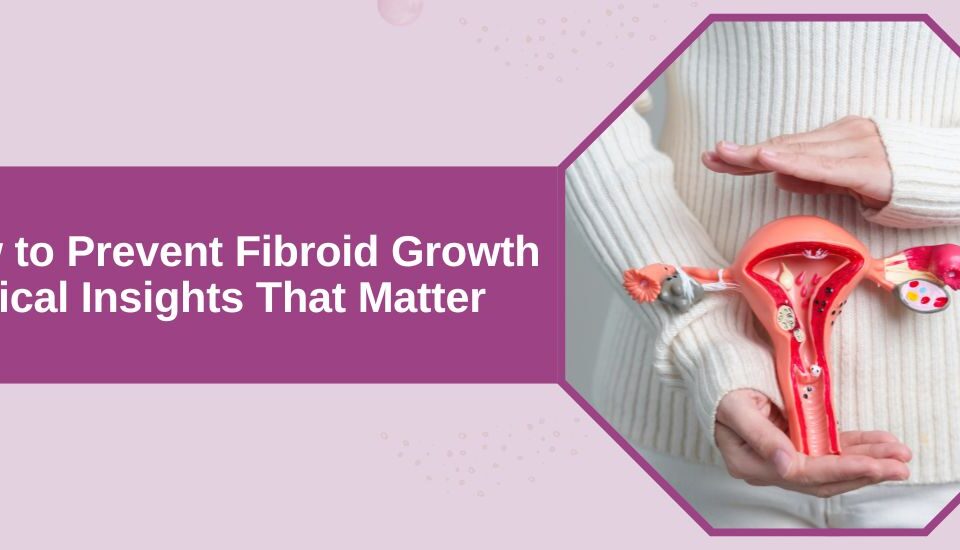- Have any questions?
- +91-98717 17305
- babiesandus12@gmail.com
Frozen Embryo Transfer (FET-IVF): What you need to know

IVF Myths and Facts: Breaking the Stereotype Around IVF
March 21, 2022
Sperm Banking – What You Need To Know
April 14, 2022Many couples desire to bring a new life into the world and raise a family, but fertility is not always a simple process. Fortunately, those who have already completed one or more IVF cycles and have frozen embryos on hand can still be hopeful of a successful pregnancy through a frozen embryo transfer.
Needless to say, planning for a FET (frozen embryo transfer) can be a source of anxiety, concern, and fear for couples who have had failed previous IVF treatments.
Do not prolong your sadness and anxiety; please visit Babies & Us, a state-of-the-art IVF Center in Mumbai.
In this blog, we share tips on preparing for and maximizing your chances of having a successful FET procedure.
What Is FET (Frozen Embryo Transfer)?
Frozen embryo transfer (FET) is a procedure used in combination with IVF. In this technique, cryopreserved (frozen) embryos generated in your previous IVF cycle are thawed and implanted into your uterus.

This technique is typically less stressful and intense than your earlier IVF attempts because you already have your healthy embryos frozen and ready from the previous session.
FET is a lifeline for couples who are unable to go with a fresh IVF procedure due to medical concerns or who want to try again in the future.
Patients come to our clinic because they trust our approach, believe in our expertise, and understand they will receive cutting-edge reproductive treatment.
Will The Embryos Survive If Frozen For A Long Time?
The embryos are assessed according to their quality before being frozen. Their prior quality determines the embryos’ survival, and the best embryos that survive the freeze and thaw cycle will result in high pregnancy rates.
Embryos of the highest quality have the best likelihood of implantation and are therefore preferred for transfer. Embryos can be cryopreserved (frozen) for years without their quality deteriorating over time.
At Babies & Us, the embryo survival rate is around 97%.
What Is The Success Rate After A Frozen Embryo Transfer?

The success rate of frozen embryo transfers is determined by several parameters, including your age, duration of infertility, endometrial thickness, the quality of the cryopreserved (frozen) embryos, whether the embryo was frozen on day 3 or the blastocyst stage at day 5, and so on.
Due to advancements in freezing procedures, the FET success rate has rapidly exceeded those of a fresh embryo transfer. Research has shown that children born through a FET cycle typically have a higher birth weight and are more likely to be born closer to their term.
FET success rates at our Babies & Us IVF clinic range from 50 – 60%.
What Are Procedures Before The Transfer?

You will undergo a series of tests and procedures to ensure that your uterus is strong enough to sustain a pregnancy. The main ones are blood tests to assess your hormonal levels, including follicle-stimulating hormone (FSH), luteinizing hormone (LH), estrogen, and progesterone, which rise and decrease naturally with a woman’s menstrual cycle.
Some tests entail examining your ovaries and uterus to rule out irregularities such as cysts or polyps that could compromise the transfer.
Additionally, there may be medications recommended depending on whether you go for hormonal support cycles or natural cycles:
Hormonal Support Cycles
In a Hormonally supported FET cycle, estrogen and progesterone are provided to mimic your body’s cycle and strengthen your endometrium. Most couples and IVF specialists prefer this procedure because it makes the day of the FET easier to control, and the hormonal support helps with any ovulatory problems.
Natural FET-IVF Cycles
In a Natural FET-IVF cycle, the date and timing of the frozen embryo transfer are determined by your ovulation cycle. An hCG shot is usually administered to induce ovulation, and progesterone is used to support the luteal phase after your ovulation and frozen embryo transfer.
The luteal phase occurs after the release of an egg by your ovaries (ovulation) and before your period begins. Your uterus lining thickens at this time to prepare for a prospective pregnancy.
What Should I Expect After The Transfer?

The overall process of transferring embryos to the uterus takes only minutes once the embryos that are to be used are thawed.
The checking of hCG (Human Chorionic Gonadotropin) – the pregnancy blood test, is usually done 9 – 14 days after the transfer. Hopefully, the embryo or embryos should implant themselves during this period and result in a pregnancy.
You may also experience some symptoms during the 2 weeks post the FET and before the pregnancy blood test.
What Are The Symptoms Between FET And The Pregnancy Test?

The symptoms after a FET procedure may differ from individual to individual. You may experience symptoms comparable to menstruation. Please note that it is also very normal not to experience any symptoms at all.
Some symptoms may be the first signs of pregnancy; however, they could also be related to progesterone and fertility medications after the transfer.
Such symptoms include:
- Spotting or light bleeding
- Pelvic pain and cramping
- Tiredness and fatigue
- Swollen and sensitive breasts
Increased urge to urinate
- An increased urge to pee can be an early sign of pregnancy.
- However, please consult your fertility specialist if you are suffering painful urination, fever, bleeding, or vomiting.
Changes in vaginal discharges
- If you notice an increase in your vaginal discharge and it is white with a slight odor, it could be an indication of a successful transfer.
- However, if there is itching or a burning sensation in your vaginal area, it may be a yeast infection caused by the tablets.
It is difficult to differentiate between menstrual symptoms and early indicators of pregnancy following an embryo transfer, so it is essential to relax and resist classifying them as one or the other.
However, none of these symptoms should be extreme, and if they are, you should call your treatment center for further instructions.
How Can I Increase Chances Of A Successful FET?

It is crucial to be prepared for the FET procedure, know what to expect, and how to increase your chances of having a successful transfer.
Read on to learn some tips before your FET procedure to increase your chances of pregnancy:
- Make sure that you organize and take your medications on time
- Make sure you get adequate rest, especially in the days leading up to the procedure
- Keep the required things handy and nearby, so you do not disrupt your bed rest
- Read, listen to music, watch your favorite sitcoms or movies, keep yourself entertained and stress-free
- Make sure your body is warm and comfortable
- Keep away from extreme temperatures, especially your abdomen and uterus area
- Strictly follow the FET-IVF safe food diet that your doctor recommends
- Ensure that you are well-rested before and after the transfer
- Avoid being near chemical-based products like parabens, formaldehyde, benzophenone, BPAs, triclosan, etc
- Avoid products with a strong fragrance and scents like nail polish, fragrant cosmetics, soaps, creams, etc
- Ask your doctor what to wear and what to pack for the transfer
- Drink enough water, so you have a full bladder to ensure an easy transfer
- Consult with the IVF specialist about when to resume any sexual activity
- Ensure timely intake of your prescribed fertility medications
- Ensure that you prioritize your health and wellbeing
- Keep your mind calm and positive, do something that relaxes you
- If your workplace is pulsing with adrenaline, do not resume work for a while
Please speak with one of our specialists at Babies & Us IVF Center among the best IVF centers in Mumbai. They can comprehensively guide you to help improve your chances of having a successful FET.
Conclusion

Parenthood is a gift that everyone deserves, and everybody deserves the chance to welcome a new addition to the family and into the world. If you are one of the nearly 16% of people who battle with infertility, you have probably felt all of the emotions that come with it, including frustration, disappointment, sadness, isolation, and a sense of powerlessness.
Planning a FET cycle may cause anxiety and tension. Stop stressing yourself out about a previous embryo implantation failure that could have been caused by several reasons. Please be assured that you are in safe hands with Babies & Us.
We are among the best IVF clinics in Mumbai because of our unwavering commitment and enthusiasm for our profession. Our top concern is you; we provide holistic, responsive, and compassionate care and a highly customized advanced fertility treatment approach.



